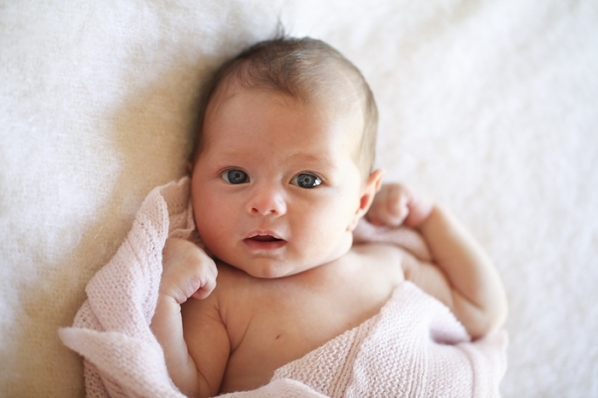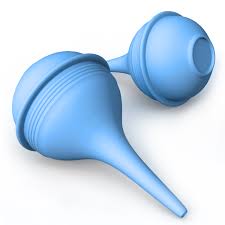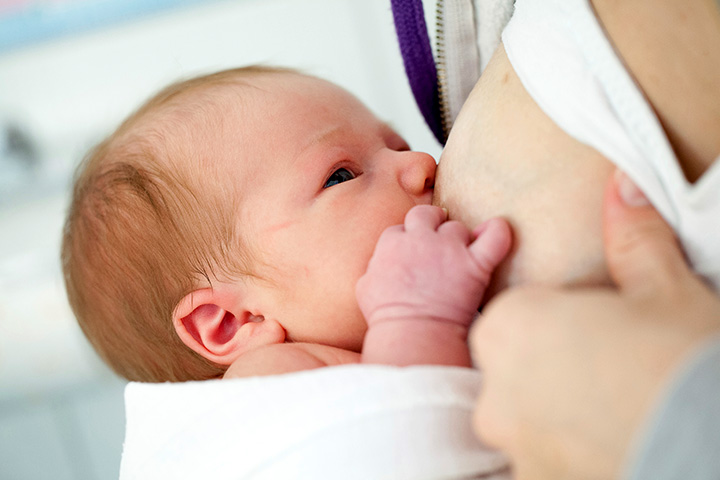Are you worried that your baby has a cold? Calm down. In general, babies get one or more colds in the first months of life. In fact, most babies are likely to have 10 or more colds by the time they are two. Most colds are viral infections of the upper respiratory tract that cause nasal congestion, sore throat and a running nose. Without complications such as pneumonia, colds normally clear within 10 days. But how do you care for a one month old with cold?

How to Know If Your One Month Old Baby Has a Cold
The immune system of a one month old baby is still weak and developing. In this state, a cold infection may lead to complications such as pneumonia or croup; hence it is necessary to consult your baby’s pediatrician for assistance.
Signs that your baby has a common cold include:
- Sneezing
- Cough
- Fever
- Stuffy nose
- Red eyes
- Sore throat
- Loss or reduced appetite
- Disturbed sleep
- Running nose with clear discharge that may thicken and turn yellowish or green in a few days
- Swelling of lymph nodes under the armpits, on the neck and at the back of the head
- Restlessness and irritability
When to Get Emergency Help
Get emergency help in case your baby has the following symptoms:
- Fever of 100.4ºF or higher
- Excess fatigue
- Nasal mucus or persistent cough
- Breathing difficulties
- Not eating or drinking
- Nails or lips turning blue
How to Help with the Cold of Your Baby
Your one month old baby with cold should not be given over-the-counter or other medications without consulting a pediatrician.
- Take care of your baby by wiping the nose clean to make breathing easier.
- Dab some petroleum jelly on the outside of the baby's nostrils and lips to reduce skin irritation.
The following are more helpful ways.
1. Rest

How This Works
The body of your one month old with cold requires energy to fight infections. Performing other activities requires energy. When resting, most of your child’s energy is directed towards dealing with the infection.
What You Need
- Comfortable and quiet place for your child to rest
What to Do
Lay your child down and play the favorite music. Weather permitting, you can also take the child outdoors to get some fresh air.
2. Steam

How This Works
Inhaling moist air will help to loosen any mucus lodged in the upper respiratory tract, including the nasal passages and throat. Incorporating a warm bath will also help your child to relax.
What You Need
- A steamy bathroom, a humidifier or cool-mist vaporizer
What to Do
- Use a vaporizer or humidifier in the child’s bedroom while he/she rests, sleeps or plays inside.
- Bathe your baby in a steamy bathroom. As you prepare for the child’s bath, leave the hot shower running for some minutes to make the bathroom steamy.
- If you don’t wish to bathe your one month old with cold but still want him/her to benefit from the steam, close the bathroom door and let the hot water run as you sit with your baby in the bathroom for 10 to 15 minutes. You may block the space under the door with a towel to keep the steam within the bathroom.
Caution
Keep the humidifier clean to prevent growth of dangerous molds or bacteria.
3. Bulb Syringe

How This Works
Because your baby cannot blow nose, you can help by using a bulb syringe to suck the mucus out. Saline drops also help, although they are more appropriate for older children. Clearing the nostrils helps the baby to breathe and feed more easily.
What You Need
- Rubber bulb syringe
- Saline solution (salt water)
What to Do
- Lay your child on the back or tip head back. Use a rolled up towel to support the head.
- Put one to three drops of clean saline solution into each of the nostrils. This will loosen and thin the mucus for easier suction. Keep the baby’s head still for 15 to 30 seconds.
- Squeeze air out of the bulb of the syringe and insert its rubber tip into one nostril. You may use your finger to close off the other nostril to improve suction.
- Release the rubber bulb gently to collect the mucus/saline solution mixture.
- Remove the bulb syringe from the nostril and squeeze out mucus/saline solution mixture into a tissue.
- Wipe the rubber syringe clean and repeat the procedure on the other nostril.
- Repeat the procedure if necessary.
Caution
- Don't repeat the suction procedure more than 3-5 times in a day to avoid irritating the nasal lining.
- You may also syringe mucus out without applying saline drops.
- In case your baby is too upset by the syringing procedure, try applying saline drops and then wipe out the mucus/saline solution mixture with cotton swabs.
- Keep away from using nasal decongestants on your young baby. They are not recommended for babies under 6 months.
4. Extra Fluids

How This Works
Your one month old with cold loses fluids through the runny nose. To replenish these fluids, feed him/her more often. Extra fluids will help to rehydrate, thin the mucus and flush it out.
What You Need
- Breastfeeding or breast milk
- Baby formula
What to Do
The best option for your one month old baby is breast milk. Breastfeed or give breast milk more often throughout the day. If your child is on formula feeding, feed him/her more often.
Caution
It is best to stick to exclusive breastfeeding, breast milk or formula unless advised otherwise by the pediatrician. At this age, babies don’t need much water. It may in fact do more harm than good.
How to Prevent Your Baby from Getting Colds
- The best way to protect your baby from colds and other health issues is breastfeeding. The practice helps the baby to benefit from the antibodies in your body. While breastfeeding offers no guarantees against disease, studies show that breastfed babies have fewer health problems than non-breastfed babies.
- You can also protect your baby from getting colds by restricting or minimizing contact with people who are having colds.
- In case you or your partner smokes cigarettes, it’s time to quit. And keep your baby away from smokers and smoking zones. Studies show that babies who are regularly exposed to cigarette smoke have more and longer lasting colds than those who are not.
